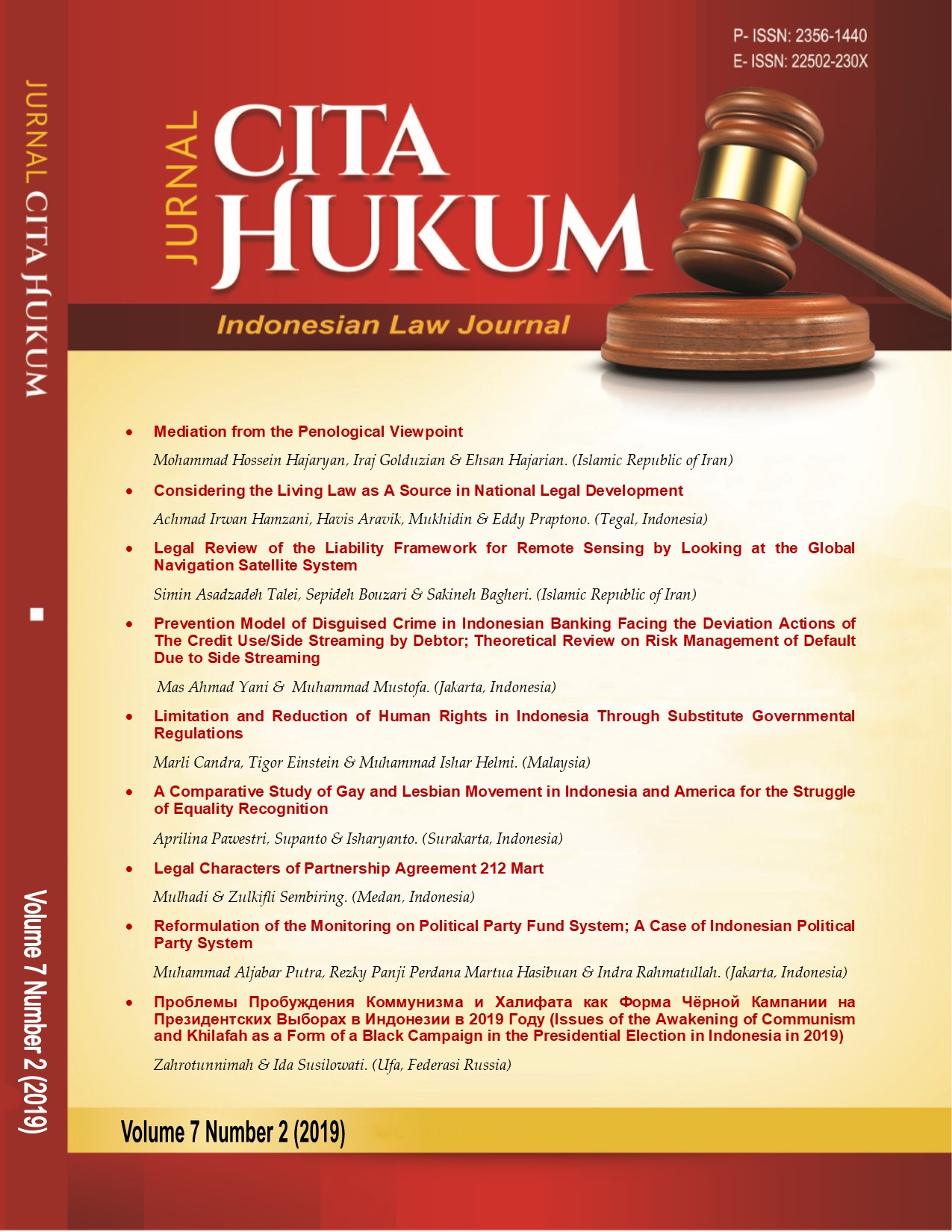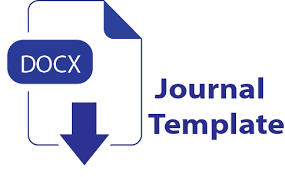International Courts and Their Contribution to Justice in the Context of the War in Ukraine
DOI:
https://doi.org/10.15408/jch.v13i2.46339Keywords:
International courts; War in Ukraine; War crimes; Human rights; International law; International Criminal Court; European Court of Human Rights; Responsibility; Justice; Special Legal RegimeAbstract
Ensuring justice during the ongoing war in Ukraine represents one of the most pressing challenges for contemporary international law. This study examines the pivotal role of international judicial institutions—particularly the International Criminal Court (ICC), the European Court of Human Rights (ECHR), and various ad hoc tribunals—in enforcing accountability for war crimes, upholding human rights, and preserving the rule of law amid armed conflict. Using a qualitative research method, the study relies on comparative analysis as well as historical and legal approaches to understand how these institutions function within complex geopolitical contexts. Through qualitative data collection and interpretive analysis of court decisions, international conventions, and reports from global organizations, the research identifies structural and procedural challenges faced by international courts, including political interference, difficulties in gathering evidence, and limited coordination with domestic jurisdictions. Moreover, the study explores the role of international cooperation and judicial precedents in building a more consistent and enforceable global justice system. The findings suggest that while international courts play a critical role in prosecuting war crimes and deterring future violations, their effectiveness is often constrained by issues of state sovereignty and the lack of uniform enforcement mechanisms. Therefore, the paper argues for a strategic consolidation between international and national legal systems to ensure that justice is not only pursued but also realized in practice. Ultimately, this research contributes to the broader discourse on strengthening international criminal justice in the era of hybrid conflicts and global political polarization.
References
Anosova, Y.V. (2018). Jurisdiction of international judicial bodies regarding the crime of genocide. [PhD dissertation brief]. Kyiv: National University of Kyiv-Mohyla Academy.
Aruna Kumari Nakkella (2022). Environment Conservation Challenges Threats in Conservation of Biodiversity, p.112.
Basysta, I.V., Vlasova, H.P., & Stratonov, V.M. (2023). Prospects and inevitability of accountability for committing war crimes, genocide, aggression, and crimes against humanity: Activity of the joint investigation team in Ukraine (JIT); cooperation with the International Criminal Court; perspectives of creating an ad hoc tribunal, etc. In Military offences and war crimes: Background, theory and practice: monograph (pp. 25-72). Riga, Latvia: Baltija Publishing. DOI: https://doi.org/10.30525/978-9934-26-302-6-2
Bernazyuk, Ya. O. (2022). Priority of international treaties in resolving legislative conflicts: analysis of judicial practice. Legal Scientific Electronic Journal, 8, 223-229. Retrieved from http://lsej.org.ua/8_2022/48.pdf.
Bosco, D. (2014). Rough justice: The International Criminal Court in a world of power politics. Oxford University Press.
Bysaha, Yu., Deshko, L., & Nechyporuk, H. (2020). International security, national security, constitutional security: theoretical and legal approaches. Comparative and Analytical Law, 4, 43-49. Retrieved from http://pap-journal.in.ua/wp-content/uploads/2020/08/PAP-4_2020.pdf.
Batiuk, V. O., & Dmytriv, S. O. (2021). On the organisation of investigation of war crimes. Socio-Legal Studies, 3(13), 77-87. Retrieved from http://dspace.lvduvs.edu.ua/handle/1234567890/3976.
Creutz, K. (2023). Pursuing justice for international crimes in Ukraine. FIIA Briefing Paper 366. Retrieved from https://www.fiia.fi/wp-content/uploads/2023/06/bp366_war-crimes-ukraine_final.pdf.
Deshko, L., & Ikonnikova, N. V. (2018). Implementation of decisions of international judicial institutions in national legal systems. Comparative and Analytical Law, 1, 361-364. Retrieved from http://pap-journal.in.ua/wp-content/uploads/2020/08/Porivnyalno-analitichne-pravo-1-2018-1.pdf.
Hrushko, M. V., Manuilova, E. V., & Fedorova, T. S. (2023). The role and place of the institution of jurisdiction in international law. Academic Visions, 21. DOI: http://dx.doi.org/10.5281/zenodo.8273281
Kononenko, V.P. (2018). Resolution of territorial disputes by the International Court of Justice: theory and practice. Kyiv-Odesa: Phoenix.
Kapustina, M. V., Demydova, E. E., & Latysh, K. V. (2023). The use of modern information technologies in the investigation of war crimes. Legal Scientific Electronic Journal 4, 544-546. DOI: https://doi.org/10.32782/2524-0374/2023-4/134
Kononenko, V. P. (2018). Settlement of territorial disputes by the International Court of Justice: theory and practice. Kyiv-Odesa: Feniks. Retrieved from http://pd.onu.edu.ua/article/view/181338/182771.
Kanienberg-Sandul, O. K., & Formaniuk, V. V. (2023). General aspects of international justice. Legal Scientific Electronic Journal, 5, 486-488. DOI https://doi
Komarova, T. V. (2018). Organisation of the judicial system of the European Union. Bulletin of the National Academy of Legal Sciences of Ukraine, 25(1), 79-96. Retrieved from http://www.irbis-nbuv.gov.ua/cgi-bin/irbis_nbuv/cgiirbis_64.exe?I21DBN=LINK&P21DBN=UJRN&Z21ID=&S21REF=10&S21CNR=20&S21STN=1&S21FMT=ASP_meta&C21COM=S&2_S21P03=FILA=&2_S21STR=vapny_2018_25_1_7
Lanza, G. (2022). The fundamental role of International (Criminal) Law in the war in Ukraine. Orbis, 66(3), 424-435. DOI: https://doi.org/10.1016/j.orbis.2022.05.010
Lytvynenko, V. M., Chichkan, V. M., & Prorochenko, V. V. (2021). Decisions of international courts as sources of international law. Legal Scientific Electronic Journal, 9, 306-309. Retrieved from http://www.lsej.org.ua/9_2021/77.pdf.
Nalyvayko, L. R., & Stepanenko, K. V. (2022). International legal proceedings: Textbook. Dnipro: DDUVS.
Onishchenko, N., Teremetskyi, V., Bila, V., Chechil, Yu. & Kostenko, M. (2023). Judicial and extrajudicial proceedings to compensate for damages caused by armed conflicts: The experience of Ukraine. Lex Humana, 15(3), 522-537. Retrieved from https://seer.ucp.br/seer/index.php/LexHumana/article/view/2663
Pylypenko, V. P. (2020). War crimes in the statutes of international criminal tribunals and the Rome Statute of the International Criminal Court. Pravo.UA, 2, 5-10. DOI: https://doi.org/10.32782/LAW.2020.1.1
Pasichnyk, Ya. S. (2012). Basic principles of international justice. Scientific Bulletin of the Academy of Municipal Administration. Series: Law, 2, 339-347. Retrieved from http://www.irbis-nbuv.gov.ua/cgi-bin/irbis_nbuv/cgiirbis_64.exe?I21DBN=LINK&P21DBN=UJRN&Z21I
Rudnytska, O. P. (2023). The role of the In ternational Court of Justice in resolving interstate disputes. Legal Scientific Electronic Journal, 2, 539-543. Retrieved from http://www.lsej.org.ua/2_2023/128.pdf.
Rynkun-Werner, R., Kozicki, B., Zelkowski, J., Krzewniak, D. (2023). Jurisdiction of the International Criminal Court in the Hague and war crimes in Ukraine in the face of security. Journal of Security and Sustainability Issues, 13(1), 325-336. DOI: http://dx.doi.org/10.47459/jssi.2023.13.34
Sassòli, M. (2019). International humanitarian law: Rules, controversies, and solutions to problems arising in warfare. Edward Elgar Publishing.
Savchuk, K. O. (2013). The International Court of Justice as a means of peaceful resolution of international disputes in modern international law. Journal of the Kyiv University of Law, 4, 341-347. Retrieved from http://www.irbis-nbuv.gov.ua/cgi-bin/irbis_nbuv/cgiirbis_64.exe?I21DBN=LINK&P21DBN=UJRN&Z21ID=&S21REF=10&S21CNR=20&S21STN=1&S21FMT=ASP_meta&C21COM=S&2_S21P03=FILA=&2_S21STR=Chkup_2013_4_84
South Asia Human Rights Documentation Centre (2007). Human Rights and Humanitarian Law. Oxford University Press.
Smyrnov, M.I. (2023). The ad hoc international tribunal on the crime of aggression by Russia against Ukraine as a mechanism for investigating and prosecuting the gravest international crime: International legal and jurisdictional aspects. Kyiv Journal of Law, 1, 403-410. DOI: https://doi.org/10.32782/klj/2023.1.62
Statute of the International Court of Justice. Retrieved from https://www.icj-cij.org/en/statute
Stefanchuk, M. (2023). Crimes of the Russian Federation in Ukraine: Challenges of holding the guilty accountable. National Association of Advocates of Ukraine. Retrieved from https://unba.org.ua/publications/8055-zlochini-rf-v-ukraini-vikliki-prityagnennya-vinnih-do-vidpovidal-nosti.html.
Topolevskyi, R. (2023). Legal responsibility for human rights violations and war crimes during the aggression of the Russian Federation against Ukraine: Preconditions and perspectives. Law of Ukraine, 6, 85-95. Retrieved from https://ouci.dntb.gov.ua/en/works/4NwZNvOl/
Teremetskyi, V., Zhuravlov, D., Boiko, V., Stratonov, V., Ilchenko, O., Glukh, M., & Chudyk, N. (2023). Organisation of courts operation in Ukraine in the period of martial law: Comparative and legal research. Management and Administrative Professional Review, 14(10), 18976-18991. DOI: https://doi.org/10.7769/gesec.v14i10.2945
Downloads
Published
Issue
Section
License
Copyright (c) 2025 Iurii Rega, Anastasiia Mernyk, Oksana Adamovych, Olha Melnychuk, Dmytro Chobotar

This work is licensed under a Creative Commons Attribution-ShareAlike 4.0 International License.












